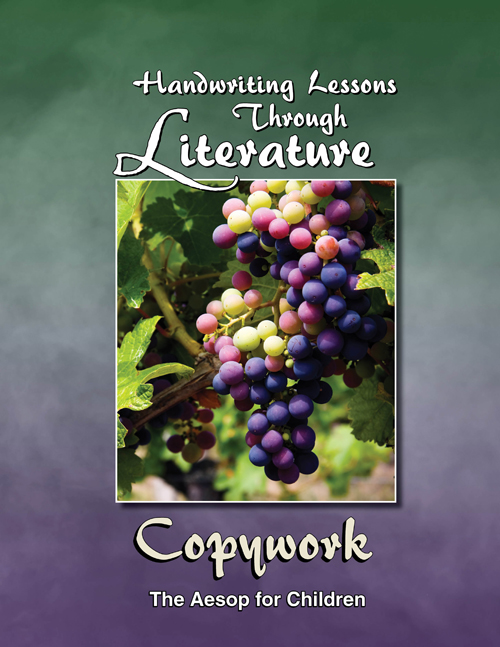In this issue: We have a new freebie available right now, a book of copywork from Aesop’s fables. Also, I have one last discussion on invisible disabilities: Why is a diagnosis important?
Invisible Disabilities: Why is a diagnosis important?
Aloha, y’all! This newsletter is a continuation of a discussion on invisible disabilities, and you can read the previous two online here: Labels: What’s in a name? and Is there an epidemic of invisible disabilities? This month, the discussion moves on to discuss why it’s important to get a diagnosis–even if it’s only a self-diagnosis with the help of a friend.
The reason for a formal diagnosis with a medical professional is pretty obvious–it’s necessary if you are seeking outside help of any type, whether it’s treatment, access to special programs, or accommodations in the workplace or school. In these cases, there is no substitute for a formal diagnosis.
But if you don’t need those things, it’s not always clear why a formal diagnosis is important, especially considering the high cost of professional evaluations. And for many people, some of the traits are present, but they are not clinically significant–they are not severe enough to receive a formal diagnosis. So why bother at all? Why not just deal with whatever issues are present without worrying about putting a label on it?
First, don’t get me wrong here. I’m not suggesting that professional diagnosis is unnecessary. But I do recognize that sometimes, formal diagnosis not feasible for a variety of reasons, money and access to qualified medical professionals being two of those reasons.
As I mentioned in the first newsletter on this subject, labels are a classification system. When a person has PTSD, people who understand what PTSD is know something about what’s going on in the person’s mind as well as the problems the individual is likely to face in daily life. This is the value of the label: It takes all of those seemingly loosely associated traits and recognizes them as related.
And there it is, the thing that makes it important to get that better understanding of exactly what it is that you are dealing with–the related issues. Without identifying the root cause of issues, many people will miss at least some of those related issues. For instance, individuals with dyslexia can also have very poor handwriting, but we do not automatically associate reading problems with handwriting problems. On the surface, they seem like two separate problems–two separate issues to deal with.
A label is an internet search word. It can lead you to the right websites and the right books. It can help lead you to the right advice and the right help because tips on helping your child with handwriting may be completely different from tips on helping your dyslexic child with handwriting.
So if you know that you or someone you love has traits that are often associated with a specific disorder, you can more easily find help that is relevant to your specific circumstances. You may also identify secondary issues that are related, even if they didn’t seem to be related, which simplifies your search for help and answers. And “help and answers” are important, even if the traits you are dealing with are not severe enough for a formal medical diagnosis.
An informal diagnosis may simply be a first step on the path to a formal diagnosis. It may be a resting place while waiting for a formal evaluation. Or, particularly for those more mildly impaired, it may provide all the understanding necessary to deal with whatever issues caused the individual to begin looking for help in the first place. Whatever the case may be, knowing and understanding that someone’s brain is working a wee bit differently than most people’s brains empowers us to act in ways that are both appropriate and helpful to our individual circumstances.
Mālama pono!
Kathy Jo
NOT an expert on disabilities, invisible or otherwise,
but known to have many opinions and a newsletter
New FREEBIE: Aesop Copywork

We’ve recently published new copywork books for our Handwriting Lessons Through Literature program, and we’re offering the copywork book for The Aesop for Children as this month’s freebie!
New freebies are available for one month. We also have two permanent freebies. A Walk in the Park discusses our homeschool philosophy, and Daily Devotions for Kids includes four prayers for each day of the week to help children develop a habit of prayer.
